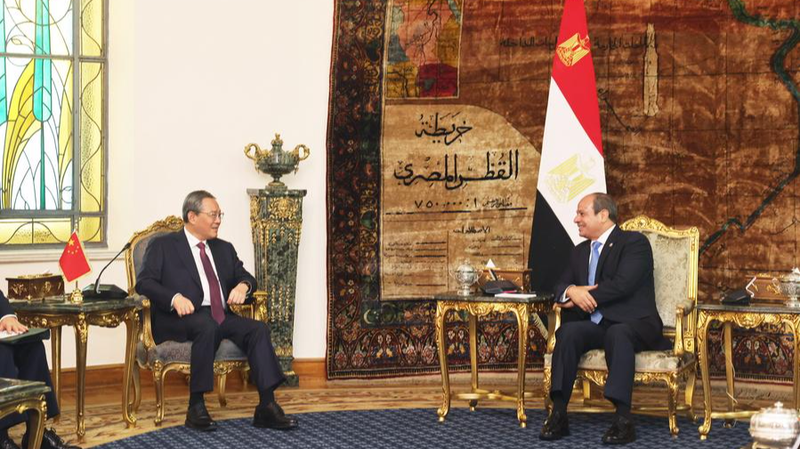Beijing’s strategy to deepen ties in North Africa took center stage as the Chinese premier Li Qiang touched down in Cairo, marking a high-profile effort to strengthen China’s role across the Arab and African worlds. His visit underscores a broader shift towards multipolarity, where emerging economies shape the future of global cooperation.
China and Egypt have been building momentum for years. President Xi Jinping and the leader of Egypt Abdel Fattah El-Sisi share a personal rapport that has translated into robust strategic alignment—from joint appearances at global events to co-hosting high-stakes summits. But beyond the headlines, the real story lies in tangible projects and economic data.
Egypt, as North Africa’s largest economy and a key member of both the Arab League and the African Union, has become a focal point for the Belt and Road Initiative (BRI). Between 2013 and 2024, China remained Egypt’s largest trading partner, even as the United States saw its share of trade dip. In 2024 alone, Egypt attracted $47 billion in foreign direct investment, leading Africa and ranking ninth worldwide. Chinese enterprises are a driving force behind this surge: nearly 2,900 firms—from tech giants like Huawei and Oppo to home appliance leaders such as Haier and Midea—are operating in Egypt, creating jobs and fueling the country’s industrial transformation.
Infrastructure projects tell a similar story of deepening cooperation. Beijing-backed initiatives include the smart container terminal at the Port of Alexandria, the revitalization of the Suez Canal Economic Zone, and a high-speed railway linking the Red Sea and Mediterranean coasts. On the sustainability front, the Benban Solar Park—one of the world’s largest solar installations—shows how green energy is reshaping the partnership.
For young global citizens, entrepreneurs, and thought leaders watching from afar, Li Qiang’s visit is more than a diplomatic gesture. It signals how the Chinese mainland is leveraging economic ties and strategic projects to build influence in emerging markets. As the world grapples with shifting power dynamics, the Cairo stopover offers a window into how China—and by extension the BRI—aims to redefine development across continents.
What’s next? With more joint ventures on the horizon and deeper policy coordination in sight, observers will be tracking how these investments translate into shared growth and sustainable impact. Will the Chinese mainland’s approach serve as a blueprint for 21st-century partnerships? Only time will tell.
Reference(s):
Li Qiang's Egypt visit highlights China's growing role in the region
cgtn.com




